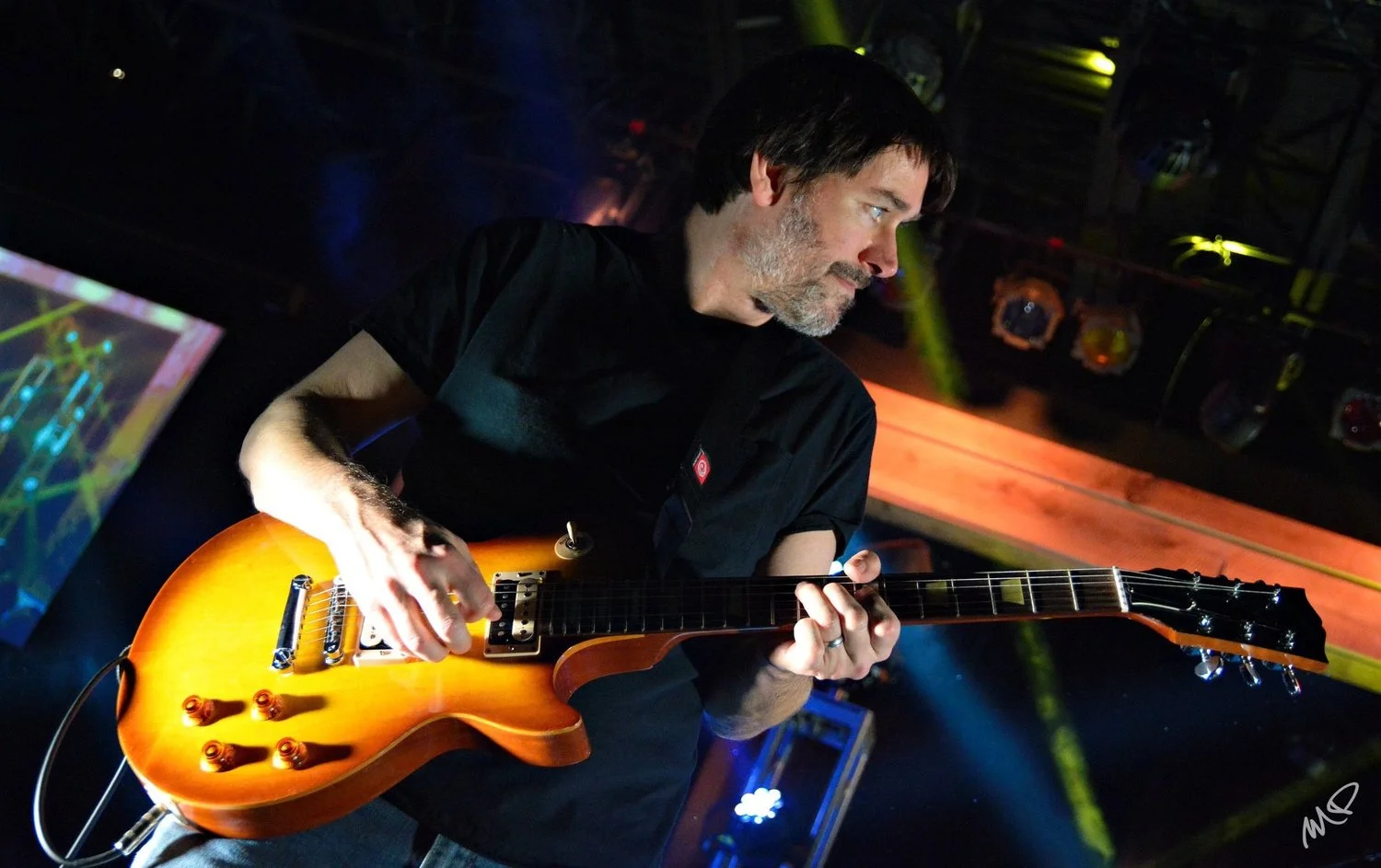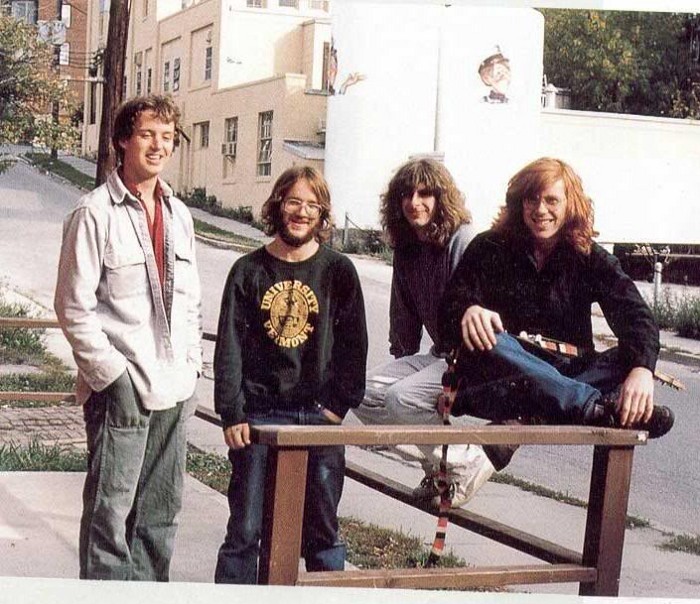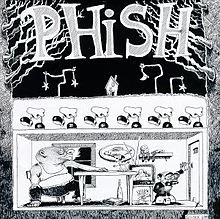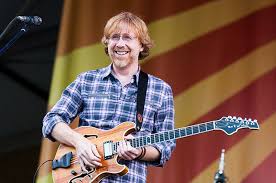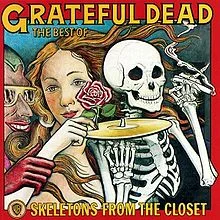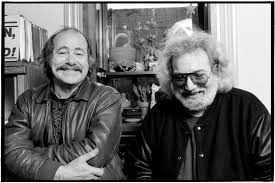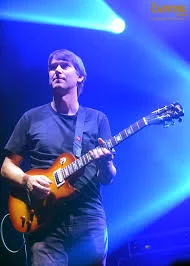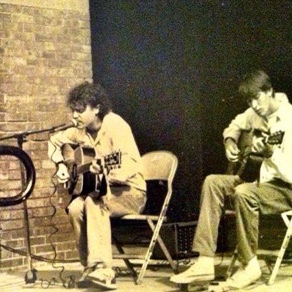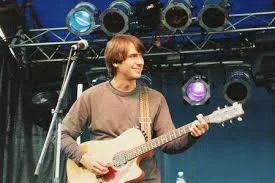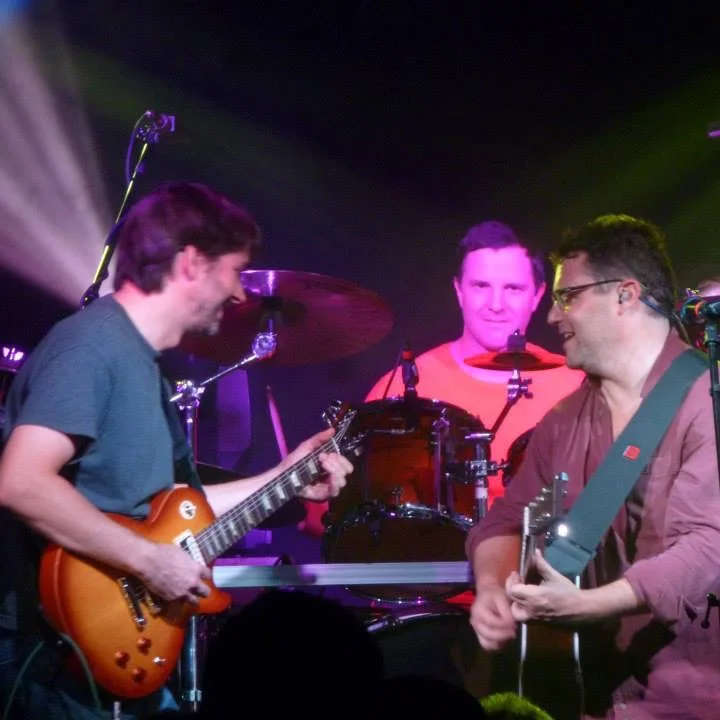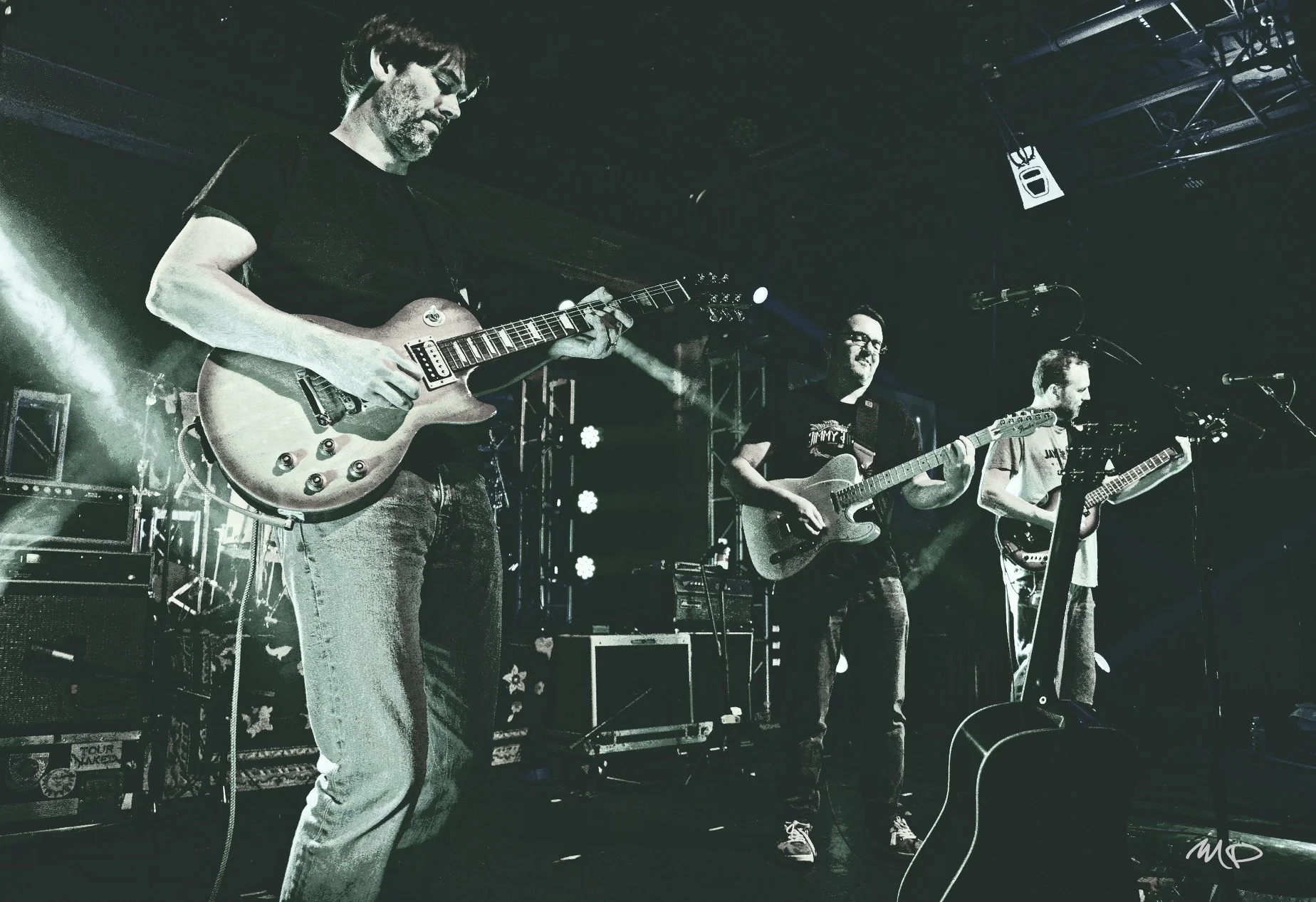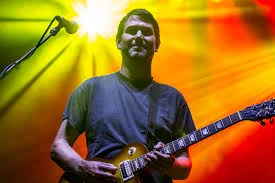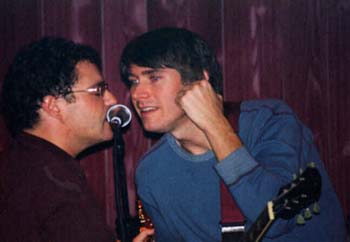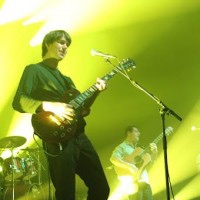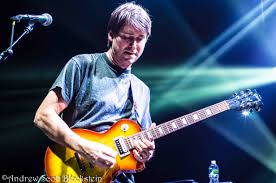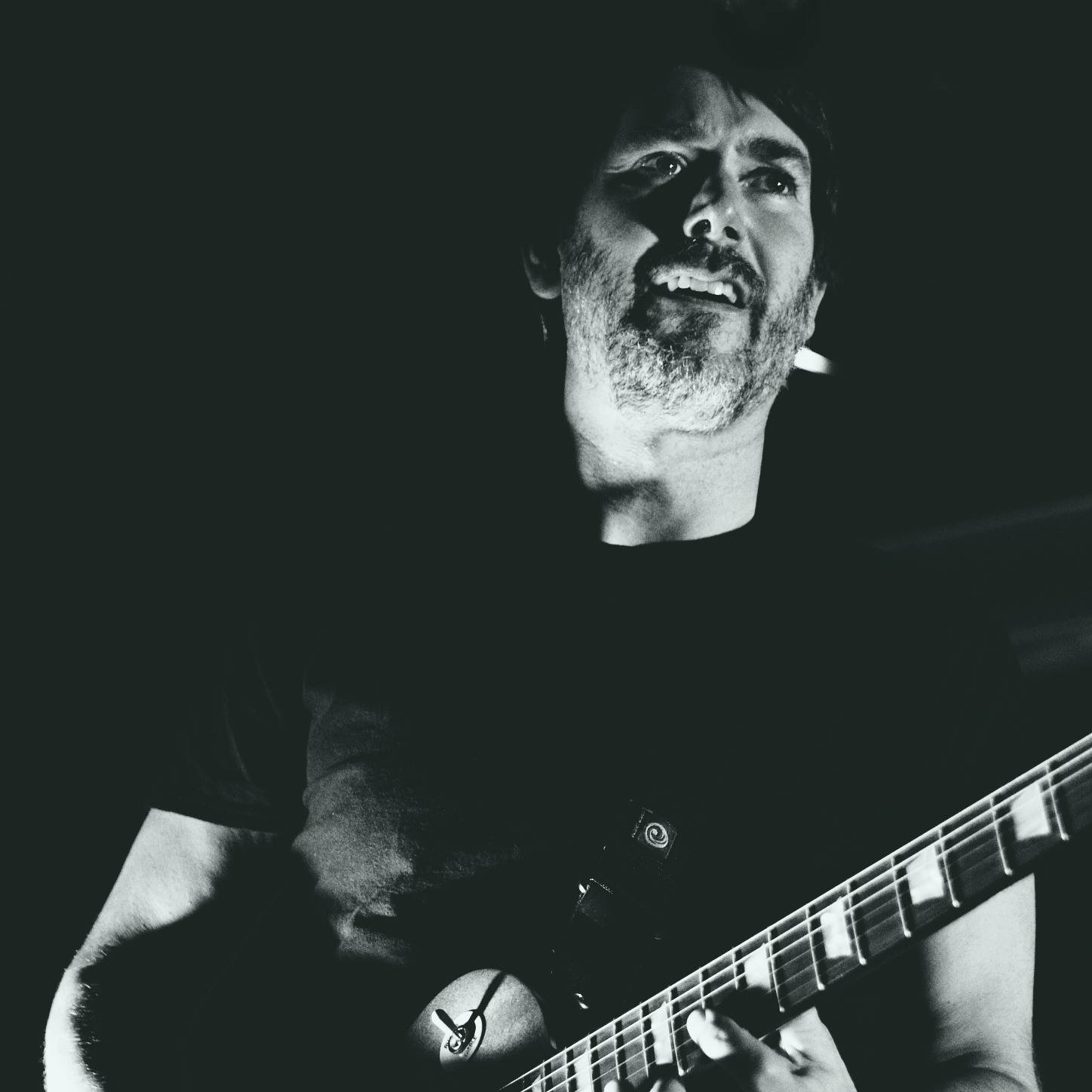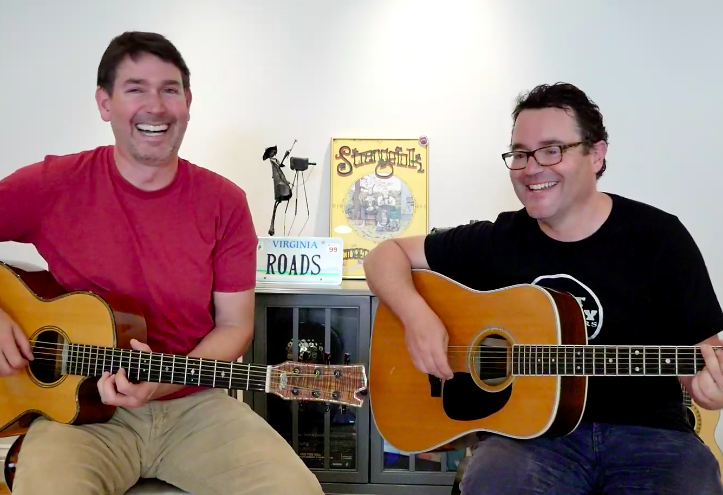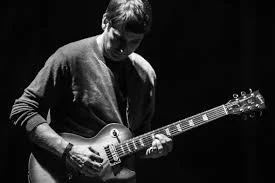What Say You? Chapter 1: Jon Trafton
Join Jon, Erik, Luke & Reid at Eden 2019 - August 9/10 - Jay Peak VT
Jon Trafton
RG: How has music has played a huge role in your life - more specifically The Grateful Dead and Phish?
JT: Music has played a huge role in my life, as a listener and as a player. I’d be lost without it. When I hear music I love I get the chills. I always thought everyone did, but if articles floating around on the internet can be trusted, apparently not everyone does.
I got into the Grateful Dead and Phish during my high school years. I was reading On the Road, One Flew Over the Cuckoos Nest, The Electric Kool-Aid Acid Test. I was beginning to feel my way around on guitar. It all fit together. As we go through life we grow and expand our horizons, but I feel like the things you are into during those formative years stay with you forever. I remember when we worked with Nile Rogers and he talked about making records in terms of building a house, that you need a rock solid foundation (drums and bass) first, and then you build the rest on that foundation. Extending that metaphor to my life, I would say most of the foundation for me was The Dead and Phish. Zeppelin, too. Those were the bands I was listening to heavily when the cement dried. Since then I’ve spent a lot of time listening to all kinds of other music but those three elements are at the core of my influences and hugely informed my input into Strangefolk.
RG: Do you remember when you first heard The Dead and what it was about them that caught your attention?
JT: I remember being visually aware of The Dead before I can remember hearing their music. I’m the second to youngest of my siblings, with a ten year age gap, so I was exposed to the stuff they were listening to. When I was a kid I would pore through the records we had in our basement and look at the artwork. I remember lots of different album covers from the time but a standout is Skeletons from the Closet. When I was a kid I was really into horror and monster movies, and I remember the album cover imagery of the skeleton and the devil really stood out. Also the name Grateful Dead. It attracted me and slightly scared me, just like those movies.
The first memory I have of listening to The Dead with intent is Franklin’s Tower, from a live tape a friend had. That was early Fall of my freshman year in high school. I remember the catchy chorus and chunky chord progression. And not knowing what the hell the words were about. Roll away the dew? The doob? I still don’t know what roll away the dew means but I sort of do, too. That’s the magic of Robert Hunter.
RG: How about Phish? When and what caught your attention?
JT: The first time I heard Phish was Fall 1989, my senior year in high school. Some friends had received a package of Phish recordings - some live, some studio - from our friends who’d gone to UVM the previous year. They were raving about this great local band that we should check out, so I borrowed a tape - Junta. My first impression was that Fishman’s drumming was totally captivating, the way he ebbed and flowed and syncopated with the music. Everything fit intricately with everything else. Really creative stuff. Beyond that first impression, each musician was playing something totally interesting and the whole was cohesive. At the time I had zero musical vocabulary to describe what they were doing, but to me it seemed the band had a musical blueprint of complex, challenging composed pieces leading into simple, gorgeous crescendos. Tension and release. It had an almost psychological effect. They were masters of building it up and up and up during the live shows. I’m glad I got the chance to see them in places like The Front and Billings Hall at UVM during those early years. That was a special time.
As a guitar player, I love Trey’s playing and it has been a huge influence on me, but at the time I first discovered Phish I think what he was doing was so beyond my scope of understanding that it kind of washed over me. I just enjoyed the sonics. Over the years, as a guitar exercise, I’ve occasionally picked out a song or section to learn. It’s always enlightening. He’s one of those guitar players where the older I get and the more I learn about guitar and music, the more I appreciate his talent and genius. You open one door and see twenty more doors.
RG: In a make-believe world where you had to choose one or the other, which would you chose and why?
JT: That’s a tough one, and I’m glad we don’t live in that world. How lucky were we to have been able to see the Grateful Dead and Phish? I still listen to both bands often and I have great love for both. I tend to have seasons of listening to one or the other. Lately I’ve been more in Phish mode. But if I could only listen to one of them for the rest of my life I think it would be the Grateful Dead. For me it comes down to the songwriting and the performance. I think the GD songbook, especially Hunter/Garcia songs are eternal. On top of that, when the band was on fire the live performances are so powerful. That’s the icing on the cake.
RG: When you think about all of your influences from guitar gods like Jerry, Trey, Jimmy Page to songwriters like Willie Nelson and John Lennon what do you think influences you more, their emotional intent or their musical voice?
JT: I think the musical voice influences me more, though both elements certainly come into play. Each of the musicians you listed above has such a unique musical stamp, whether it be a vocal timbre, musical vocabulary, phrasing style, all the past influences they carry forward. But the first thing about music that hits me is the sonic aspect, what it sounds like. The groove, the melody and phrasing, cool chord changes. Registering the emotional intent is important to me but it usually follows the sonic overall impression. For example, with John Lennon’s “Imagine” I think his emotional intent was to put out a political message. I think he wanted people to actually think about world peace by spinning it around a bit. Imagine there’s no heaven? That was going to rattle some cages. With Imagine he was repeating some of his earlier lyrical themes but, as he put it, “with a little honey,” so it would go down easier. But when I first heard that song I didn’t register any of that; I heard what it sounded like: the piano, his voice, the beautiful melody. I heard the honey. Then you listen to what he’s saying and it’s powerful.
RG: Their songwriting or their live performances?
JT: Both in equal measure for me nowadays. I think when I was younger I would have said live performances, because that’s where I felt the energy. For me, the Grateful Dead was just about the best of both worlds. Phish, too. The artists I place on the highest pedestal tend to be those who wrote or write great songs and gave or give great performances.
RG: As listeners why do you think some people are "of music" and others can take it or leave it?
JT: I think it’s nature and nurture. Some people are wired that way, some people discover it in their environment or seek it out. I grew up with music always on the radio, records being played, people playing instruments and singing in the house. Would I have been so touched by music so much if I hadn’t grown up in this environment? Who knows? On the other hand, I have friends who didn’t grow up that way but they are diehard music appreciators and live concert-goers.
RG: Besides obvious influences like The Dead, The Beatles, The Phish, Led Zeppelin are there other "off the beaten track" musicians or genre's that you deeply tie your musical lineage too?
JT: Early hip hop was my first musical obsession. When I was a kid I visited my extended family in Berkeley, CA. I think it was 1982 and the song Planet Rock by Afrika Bambaataa was being played a lot on the radio. It sounded like it came from the future. My cousin and I were instant fans. At the time I had no idea what an 808 was but the sound was unforgettable. And I loved the vocoder sounds. Around this same time Neil Young released Trans, which was really vocoder-heavy. I would see videos from the album on HBO’s ‘video jukebox’ and hold my little tape recorder up to record the music. I still have those tapes somewhere. That was my first awareness of Neil Young. I absolutely loved it. I still highly recommend that album, by the way. Around 1984 Run DMC released their debut album and I was in heaven. That music got me through Jr. High School. When I heard Beck for the first time I instantly loved his music because I could hear those influences all over the place. It was like a stew of everything I liked.
The other huge influence for me was top 40 radio during that same early-mid 80s period. Strangefolk audiences (and band members) have been subjected to many musical snippets from songs of that era.
RG: How would you describe the sensation when you are in "the flow" or the zone when you are playing a guitar solo?
JT: It’s a feeling of everything easily falling into place and propelling forward effortlessly. To me it always feels like it’s something flowing through me rather than me actually doing it, like I’m a witness to it. It’s one of those things that you can invite, you can lay the groundwork so as to be optimally open to it, but can’t ever force it to happen. It can also disappear as soon as you start thinking about it. For me the best path to that place is trying to really listen to what the band is doing and not think at all about what I’m playing or where it’s going. Sometimes it lasts for a song, a set, or the whole night. And sometimes the whole band is on the same wave, sometimes it’s an individual thing. You hope for it every time, and the goal is always to be good no matter what, but those zone moments are magic.
RG: Whats one of your top10 Strangefolk performances and what was it like?
JT: One of my favorite Strangefolk memories is when we played Battery Park in Burlington, VT on July 4th 1997. It was a miracle that the city allowed us to play a free outdoor daytime show in the park on July 4th. We had a big crowd but it felt like we knew every single person there and it was just a big party of friends. There wasn’t a proper stage, it was more like these large steps, so we were eyeball to eyeball with the crowd, people dancing all over the place. The energy was so great. I think it was during Alaska that people just started coming up on the stairs and dancing behind us, next to us, all around us. It became a huge dance party. That was a real highlight.
